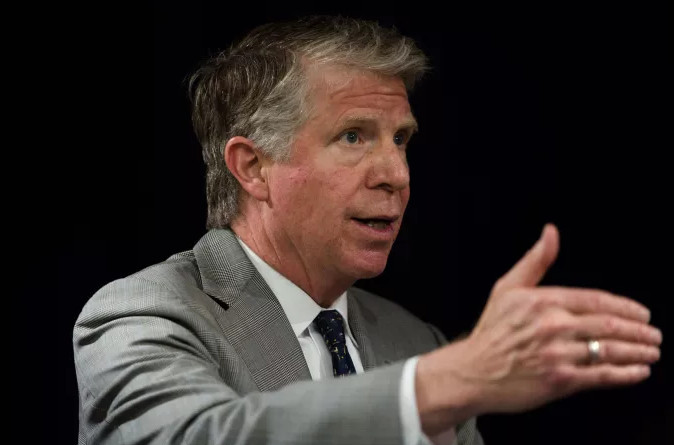California native Malcolm Mirage’s dream was to own a legal cannabis dispensary. For years, he had grown marijuana and sold it on the black market, while working a day job as a personal trainer. But in his late 20s, Mirage decided it was time to jump into the growing legal industry — before it got too crowded — and build his expertise into a sustainable, above-board business.
In order to open up that business, which he calls Mirage Medicinal, he needed to come up with $500,000 in startup capital, so Mirage began to scale up his operation, expanding into lucrative markets in other states.
“I needed [money] for anything that a regular normal business would need $500,000 for, except I could just never go to a bank,” Mirage, 34, says. “People still can’t go to a bank to get a loan for selling cannabis.”
Mirage had almost reached his goal when he fell on some bad luck. He ended up being arrested and serving time in jail — a record, which now makes it a challenge for his cannabis business to thrive.
Under California’s newly-passed Proposition 64, registered businesses will be able to sell recreational marijuana starting in 2018. But for some aspiring entrepreneurs trying to join the green rush, the law says they may be denied a license to sell if they have prior drug convictions. That provision worries Mirage.
Racial disparity in who gets license
Mirage, who asked to not be identified by his real name, says there’s a racial disparity when it comes to people who are selling medicinal marijuana on the black market and most of the people who get to sell it “legitimately.”
“The black market is filled with people of color — just like the prison that I was in — and the people in the above-ground market, who are distributors, manufacturers and investors, are all white,” he says.
“I may never be able to own a business selling, growing, manufacturing cannabis because of my record. … And to me, it’s a huge hypocrisy. The only reason there’s a pie to be cut up is because people like myself going back decades created this pie.”
Looking back to when he first decided to get into the legal cannabis business, Mirage recounts the chain of events that led to his current situation.
“In 2012, a pound of marijuana grown here in the state of California could be bought wholesale for anywhere between $1,500 to $3,000, depending on the quality,” he explains. “Outside of California, it could go anywhere from $4,000 to $7,000, and so in order for me to gather up the largest sum of capital I could in the shortest amount of time, I had to go out [of California] and get clients instead of having native clients here.“
Those efforts led Mirage from his hometown in San Francisco to numerous trips across the country over the next couple of years. Then, one day in the summer of 2014, he was pulled over just outside of Amarillo, Texas.
Arrested before business development
“There was 140 pounds of marijuana in the back of the vehicle and I ended up in jail for cannabis distribution in Texas,” He says. “I still wasn’t deterred though, I was very determined, and I wasn’t gonna let even an arrest in Texas stop me from opening up Mirage Medicinal.”
“I was in the tombs in Manhattan, which is what they call central booking. I had been arrested on the Lower East Side making a transaction with somebody who informed on me,” he says. “In the tombs, the judge asked what I was on probation for and when she said, ‘And he’s on probation for 130 pounds of marijuana in Texas,’ you could hear this audible gasp in the courtroom. … The jig was up at that point, and that was when I called my sister on the phone.”
credit: npr.org




